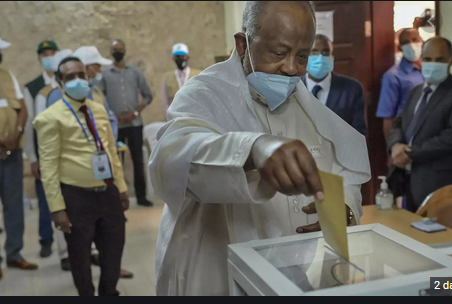
Djibouti President wins election with 97%, final results
Published on April 12, 2021 at 8:21 AM by Face of Malawi
Djibouti veteran ruler Ismail Guelleh is now confirmed as president for another term, with final results showing he won over 97% of votes, according to final figures
It is his highest score since entering politics in 1999 when he took over from the country’s first president.
But only 215,000 Djiboutians registered to vote in Friday’s election out of a total population of 990,000 people.
Guelleh faced off with only one other rival after opponents boycotted the election.
His challenger was little-known businessman Zakaria Ismaïl Farah, who won just 2% of the vote.
Many celebrated his win as Guelleh is seen as a beacon of stability for some.
Djibouti has remained stable in a volatile area, neighbouring Somalia and opposite Yemen.
The country has taken advantage of its geographical position and has invested heavily in ports and logistics infrastructure.
“We are all so happy, we vote 100% IOG, we support the president. We went early morning to the polling stations and we all agree,” said retailer Halima Bourhan Ali.
But others are critical of the president, who along with his family, has ruled with an iron fist. The country has seen an erosion of press freedom and a crackdown on dissent.
“We can’t say he is a president, a president organises good elections, this was not an election,” said Mahamoud Youssouf Ali, a taxi driver and brother of Fouad Youssouf Ali, an imprisoned former lieutenant from the Djibouti army.
“We are entering a period of five years of problems, more than ever, five years of problems, five years of unemployment, five years of fraud, five years where we will be put down.”


